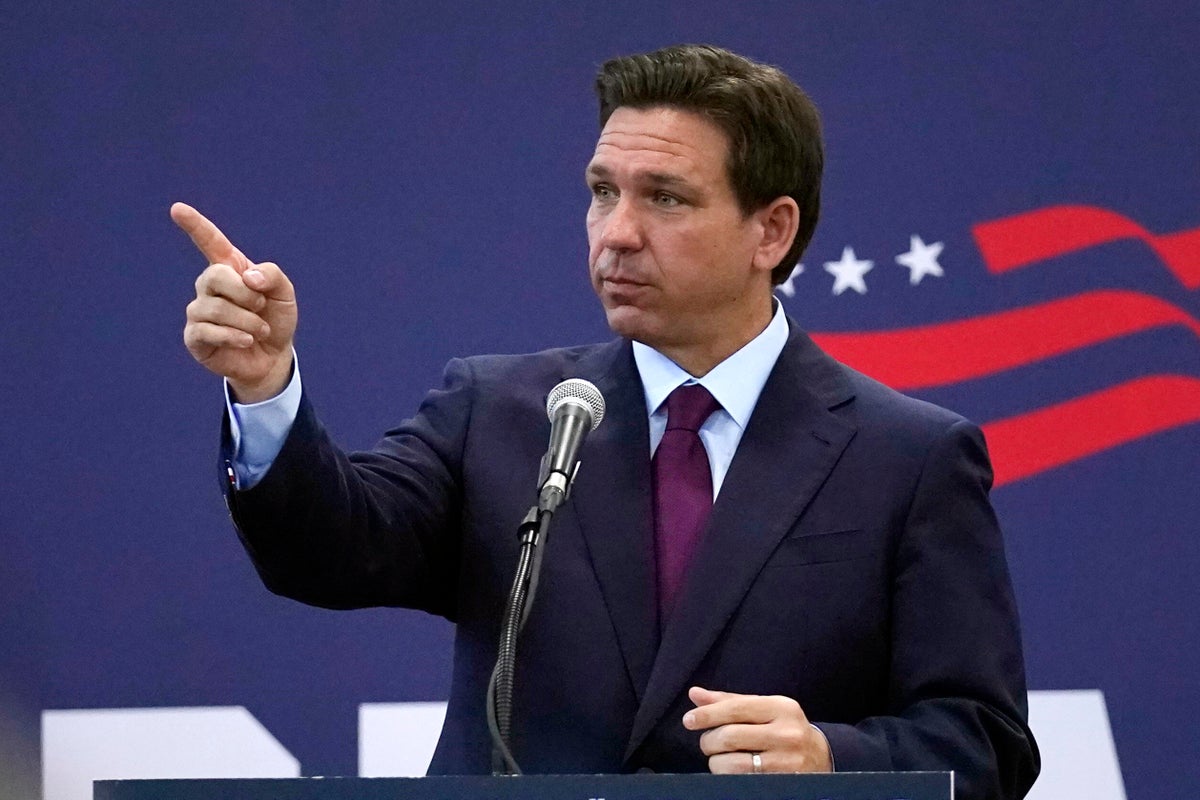
The nationwide organisation that oversees advanced placement high school courses says the state of Florida has “effectively banned” its psychology coursework, days before thousands of students enrolled in the classes begin the 2023-2024 school year.
State education officials have instructed school superintendents that teaching elements of the course regarding sexual orientation and gender identity are illegal under state law, according to a statement from the College Board. School districts are free to teach AP Psychology coursework only if it excludes any mention of such issues, according to the College Board.
The course asks students to describe how “sex and gender influence socialization and other aspects of development,” a framework that has been part of the curriculum for more than 30 years.
Recently enacted Florida law prohibits classroom instruction of sexual orientation and gender identity in all grade levels, what opponents have derided as a “Don’t Say Gay” law, drawing fears that its broad scope could be used to effectively chill speech by and about LGBT+ people and threaten schools with potential lawsuits over perceived violations.
“Requiring what is effectively censored educational material does an enormous disservice to students across Florida, who will receive an incomplete picture of the psychological research into human development,” according to a statement from American Psychology Association CEP Arthur C Evans Jr.
“An advanced placement course that ignores the decades of science studying sexual orientation and gender identity would deprive students of knowledge they will need to succeed in their studies, in high school and beyond,” he added.
Without the inclusion of that unit in the curriculum, the College Board will not be able to recognise the course as an AP-level class, effectively preventing students from receiving college credit for taking it.
The Florida Association of District School Superintendents (FADSS) has disputed the College Board’s statement that the state has “banned” the course.
“Superintendents are openly communicating with parents their district’s plans for this course or an alternative college level course as we prepare for the start of the school year,” according to a statement from FADSS shared with The Independent on 4 August.
“AP Psychology continues to be listed in Florida’s Course Code Directory and we hope that College Board will keep the best interests of students at the forefront and award college credit to all Florida students who successfully complete the AP Psychology exam,” the statement added.
A spokesperson for the state’s Education Department blamed the College Board for restrictions on the AP Psychology course. “We encourage the College Board to stop playing games with Florida students and continue to offer the course and allow teachers to operate accordingly,” according to Cassie Palelis.
More than 326,000 students – including nearly 28,000 students in Florida – took the AP Psychology exam in 2023, according to the College Board.
Florida Governor Ron DeSantis, who is seeking the Republican nomination for president in 2024, has radically overhauled education policy in the state by eliminating honest lessons of race and racism in state schools, reshaping local school boards, and banning public colleges from offering classes that “distort significant events” or “teach identity politics”.
The governor also has signed a measure into law banning transgender people from using bathrooms that align with their gender and measures that eliminates access to gender-affirming care and restricts drag performances. Those laws have been temporarily blocked in federal court.
Mr DeSantis repeatedly defended the passage of the Parental Rights in Education Act, what opponents have called “Don’t Say Gay,” to “protect” kindergarteners and young students from “transgenderism” and discussion of sex in classrooms. This year, he explicitly expanded the law to cover all grades.
“Remember when DeSantis was adamant that his ‘don’t say gay’ law was about ‘protecting’ kindergarteners?” said Chasten Buttigieg, husband of US Transportation Secretary Pete Buttigieg. “Now he doesn’t think the smartest high schoolers taking college-level courses can handle the existence of LGBTQ people.”
On the last day of Pride Month in June, the governor’s presidential campaign shared a video that appeared to celebrate headlines and comments labeling the governor’s anti-LGBT+ agenda “draconian”, a threat to “trans existence” and “totalitarianism in disguise”.
Earlier this year, state education officials also banned AP African American Studies in high schools, claiming that the course “significantly lacks educational value” and “inexplicably” contradicted Florida law.
A letter dated 12 January from the Florida Department of Education to the College Board said the board is welcome to return to the agency with “lawful, historically accurate content”.
Last month, Florida school officials approved a new set of standards for Black history curricula that enslaved people “developed skills” that could be “applied for personal benefit”. Another guideline instructs high schoolers to be taught that a massacre in the state led by white supremacists against Black residents to stop them from voting in 1920 included “acts of violence perpetrated against and by African Americans.”
The standards have faced widespread derision, with Vice President Kamala Harris delivering a speech in Florida condemning the language, while the governor continues to defend them in a series of interviews and statements.
“With every passing day, Florida is going out of its way to limit, rather than expand, the educational opportunities available for its young people,” Randi Weingarten, president of the American Federation of Teachers, the nation’s largest union of educators, said in a statement.
“It seems nothing can stop the slippery slope of government censorship and bans, even against a long-running and widely respected AP course that has helped the next generation pursue their dreams,” she added. “No state government should ever be engaged in the un-American practice of censoring the science that is taught to our students.”
Kelley Robinson, president of the Human Rights Campaign, the nation’s largest LGBT+ civil rights organization, said Florida officials have “further compromised the quality of education in the state by acting as if LGBTQ+ people don’t exist.”
“LGBTQ+ people do exist, and any decision to remove us from curricula isn’t going to change that,” she added.







